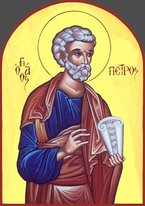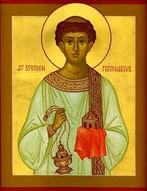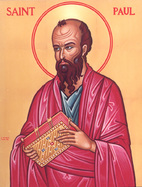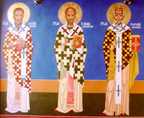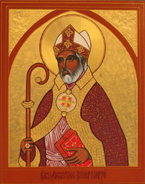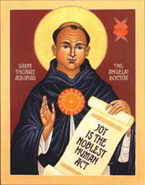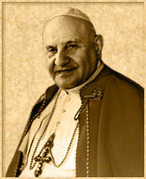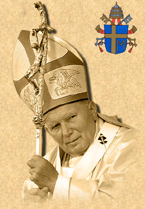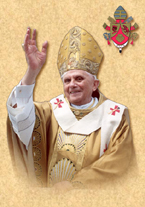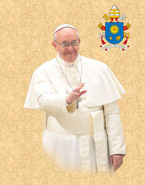The great cultural tradition of the faith is home to a presence of immense power. What in museums is only a monument from the past, an occasion for mere nostalgic admiration, is constantly made present in the liturgy in all its freshness. But the present day, too, is not condemned to silence where the faith is concerned. Anyone who looks carefully will see that, even in our own time, important works of art, inspired by faith, have been produced and are being produced—in visual art as well as in music (and indeed literature). Today, too, joy in the Lord and contact with his presence in the liturgy has an inexhaustible power of inspiration. The artists who take this task upon themselves need not regard themselves as the rearguard of culture. They are weary of the empty freedom from which they have emerged. Humble submission to what goes before us releases authentic freedom and leads us to the true summit of our vocation as human beings. Commentary: The point made by the Holy Father on artistic freedom is precisely the same one he has time and again made, in general, about freedom in truth. True freedom is never about operating in the absence of margins and prescribed limitations; it is about being free of error, of the clutches of humanistic conceit, and of narcissistic and unrestrained expression.
Using the same rhyme and reason, Pope Benedict XVI speaks of authentic artistic freedom. He is not, and neither should any liturgist be, saying that the composition of good sacred music has been brought to completion and should therefore cease as if it was an issue of public revelation. Mother Church continues to encourage her faithful to express themselves in jubilant praise through the writing of sacred music, even in this modern day. However, to contend that the writing of modern sacred music should follow the spirit of the age is to manifest a kind of spiritual thoughtlessness and lack of discernment on the very clear division made by the Church between the sacred and the non-sacred. Even that which is composed in the present must find itself to be a faithful extension of that which was in the past, so that the ageless worship of the saints of the past finds participation in the worship of the saints of today. Only in such faithfulness can the glorious mysteries of the Church be so adequately expressed in the worship of her peoples. In fact, it probably has never been as critical before as it is now to for writers of sacred music to operate so antithetically to the wider culture of the world. In a world that promotes sensuality of human expression through intoxicating music, one would be guilty of liturgical denigration if such music was used as if it was in conformity to the Church's sacred worship. It would require one's senses to be utterly dulled to commit such an indecent indiscretion. Write if we must, and write we must. But write in faithful obedience to the beckoning of the Church and the voices past. Only then can we say that our worship in the present finds its timeless harmony in an ageless orchestration of all saints past and present. If liturgical inculturation means ignorance, or worse still, defiance of the spirit of the liturgy, it then preaches an artistic freedom that is counterfeit, to say the least. True inculturation would give rise to an artistic freedom that is authentic, both relevant in the present and timeless in its essence.
0 Comments
Leave a Reply. |
Categories
All
Archives
December 2021
|
|
FOLLOW DEACON SHERMAN DEACON'S FORMATION FB GROUP
© 2021 Sherman Kuek. All rights reserved.
|

 RSS Feed
RSS Feed
